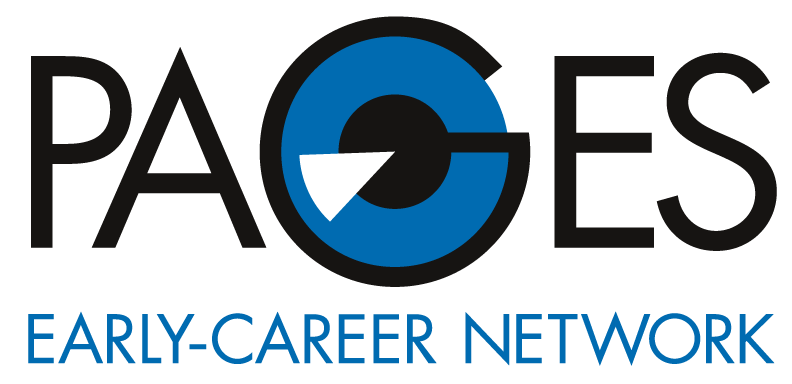- Home
- Publications
- PAGES Magazine
- Demystifying The Grant Writing Process For Early-career Paleoscientists
Demystifying the grant writing process for early-career paleoscientists
Tsz-Wai Chan P & Merino-Campos V
Past Global Changes Magazine
27(2)
91
2019
Phoebe Tsz-Wai Chan1 and Víctor Merino-Campos2
1st PAGES Early-Career Network workshop, Prague, Czech Republic, 26-29 May 2019
For the first time in its (young) history, the PAGES Early-Career Network (ECN; pastglobalchanges.org/ecn) organized a workshop for early-career researchers (ECRs) who are or will be looking for funding in science in the near future. The main goals of this workshop, titled "Funding starts here" (calendar/26908), were to:
- introduce ECRs to the different funding agencies and opportunities available in Europe and the United States
- provide a framework for understanding the grant-writing process – from writing to submission and review – based on strategies and advice given by invited speakers (see Fig. 1)
The workshop was centered around five invited speakers who have either had experience as an applicant and/or served on the evaluation panel of different funding agencies (e.g. the European Research Council (ERC), Horizon 2020, Marie Skłodowska-Curie actions and the US National Science Foundation (NSF)).
Grant writing is central to launching, advancing, and maintaining careers in academia. However, the grant-writing process is long and arduous, often taking several attempts before success is achieved. As Chung et al. (2008) pointed out, fewer and fewer proposals are being funded even though more applications are being submitted each year. This means that there is increased pressure to excel at writing grant proposals. Therefore, having the opportunity to receive advice from experienced professionals can greatly improve our chances of achieving our research goals.
 |
|
Figure 1: Funding cycle summarizing the steps of the grant-writing process based on the main learnings from the workshop. Advice is pointed out at different stages of the cycle. |
The workshop kicked off with an ice-breaker dinner at a local restaurant offering traditional Czech cuisine, where we had the opportunity to meet and mingle with fellow ECRs. The next morning, we were welcomed by the PAGES ECN organizing committee, followed by an introduction to the main components of a research grant proposal by the first invited speaker, Petr Kuneš. Petr explained what should be considered when writing the different parts of a proposal, along with some practical tips for grant writing. Special emphasis was placed on having ambitious yet concrete and achievable goals. The next speaker, Jonas Bunikis, offered tips and advice for applying to the ERC and highlighted best practices as well as common mistakes in the application process. Later, Alessio Rovere shared an inspirational story about his ERC starting-grant success and provided a very real look at what it takes to be successful in writing ERC starting grants.
On the second day, Jana Čejková introduced opportunities and eligibility requirements within the Horizon 2020 and Marie Skłodowska-Curie actions programs, while Maria Uhle described the structure of the US NSF funding system, with a particular focus on the opportunities available to ECRs in the paleosciences. During the workshop, participants also had the opportunity to work together and apply their newfound knowledge in the development of a three-year research project of their own design. On the last day, participants presented their group’s research ideas, following the previously outlined components of a research proposal, which was then assessed with feedback from peers and the expert panelists.
The PAGES ECN "Funding starts here" grant-writing workshop provided valuable information for PhD students and researchers in the early stages of their careers. It introduced them to opportunities available in Europe and North America, answered vital questions about the grant-writing and evaluation processes, and gave participants hands-on experience in developing a research proposal. The meeting resulted in a special interdisciplinary and cultural exchange, where young researchers from different nationalities came together to learn and share knowledge and experiences. We are thankful to have been a part of this experience!
affiliations
1Department of Earth Science and Bjerknes Centre for Climate Research, University of Bergen, Norway
2Doctoral program in Biological Sciences, National University of Mar del Plata, Argentina
contact
Phoebe T.W. Chan: phoebe.chan uib.no
uib.no
Víctor Merino-Campos: vmerino mdp.edu.ar
mdp.edu.ar
references
